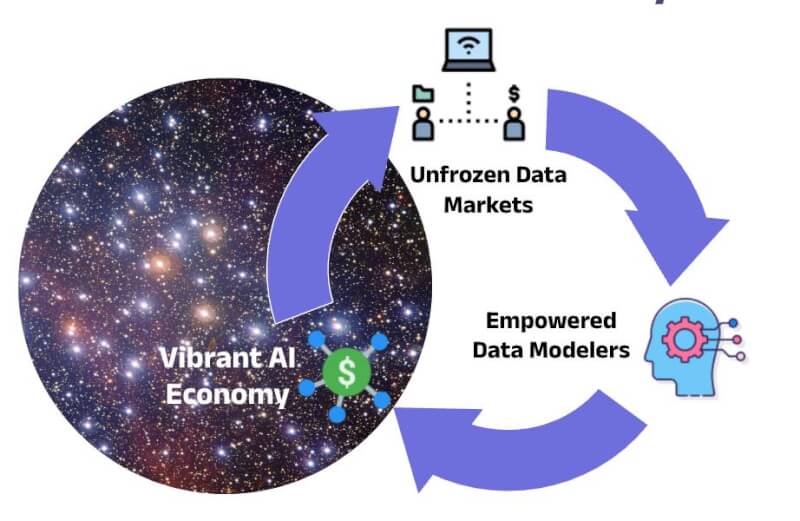This is the 2nd blog in a series of blogs describing and signifying the importance of DPI for AI, a privacy-preserving techno-legal framework for AI data collaboration. Readers are encouraged to first go over the 1st blog for better understanding and continuity.
What is unique about the techno-legal framework in DPI for AI is that it allows for data collaboration without compromising on data privacy. Now let’s put this in perspective of Indian enterprises and users. This framework can potentially revolutionize the entire ecosystem to slingshot India towards an AI product nation where we are not just using AI models developed within India but exporting the same. What is the biggest roadblock in this dream? In this open house (https://bit.ly/DEPA-2), we make a case that privileged access to data from Indian contexts is not only necessary to develop AI-based systems that are much more relatable to Indians but in fact, gives Indian innovators a distinct advantage over much larger and better funded big tech companies from the west.
Let’s get started. Clearly, there is a race to build larger and larger AI models these days trained on as much training data as possible. Most training data used in the models is publicly available on the web. Given that Indian enterprises are quite behind in this race, it is unlikely that we will catch up by simply following their footsteps. But what many folks outside of AI research circles often miss is that there has been credible research that shows that access to even relatively small amounts of contextual data can drastically reduce the data and compute requirements to achieve the same level of performance.
This sounds great, right, but (there is always a but!) much of this Indian context data is not in one place and is hidden behind numerous government and corporate walls. What makes the situation worse is most of these data silos are enterprises of traditional nature and are not the typical centers of innovation, at least for modern technologies like AI. This is a fertile ground for DPI for AI. The three core concepts of DPI for AI ensure that this data sitting in silos can be seamlessly (thanks to digital contracts) and democratically shared with innovators around India in a privacy-preserving manner (thanks to differential privacy). The innovators also do not need to worry one bit about the confidentiality of their IP (thanks to confidential computing). The techno-legal framework makes it super easy for anyone to abide by the privacy regulations without sweat. This will keep them safe from future litigations as long as they follow easy-to-follow guidelines provided in the framework. This is what we refer to as the unfreezing of data markets in this Open House. This unfreezing is critical for our innovators to get easy access to contextual data to give them a much-needed leg up against the Western onslaught in the field of AI. This is India’s moment to leapfrog in the field of AI as we have done in so many domains (payments, identity, internet, etc.). Given the enormity of the goal and the need to get it right, we seek participation from folks from varied expertise and backgrounds. Please share your feedback here
For more information, please visit depa.world
Please note: The blog post is authored by our volunteers, Hari Subramanian and Gaurav Aggarwal.


